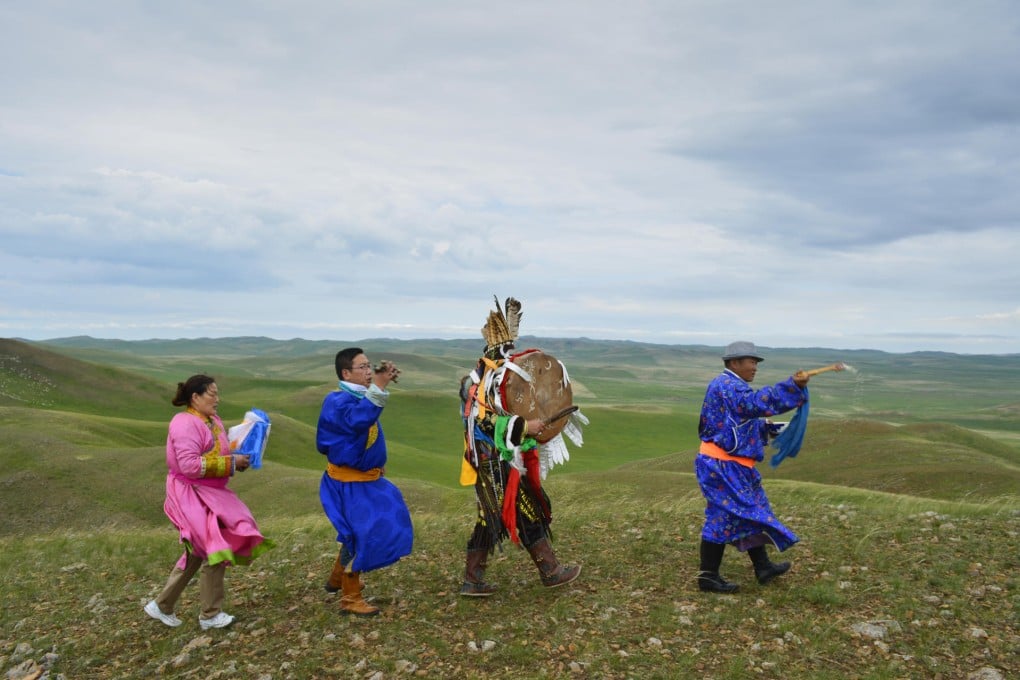Spirit of the age
The stresses and strains of modern China have created a ready clientele for Mongolian shaman Erdemt. Text and pictures by Jonathan Kaiman

The shaman of Xiwuqi city, Inner Mongolia, wakes before sunrise on a Wednesday morning in June, piles his family into his silver Peugeot and drives out beyond the city's boxy mid-rises, past miles of strip mines and coal refineries, to the foot of a broad green hillside on the grasslands. He hikes to the top, removes his trainers and button-down shirt, and dons a black robe and a feather headdress. Then he gets to work.
The hill is on the shaman's ancestral land and he climbs it once a year to summon his ancestors; to express his desires and to hear their demands. For two hours he delivers a thunderous performance rife with drum-beating, horn-blowing, the jingle of bells and the clanging of cymbals. His wife and son scatter sheep's milk and rice liquor beneath variegated prayer flags. They throw handfuls of confetti to the wind.
"I saw a spirit riding a white horse with a flowing mane and he told me, 'Right now, your ability as a shaman, your energy, your magic, they've improved very quickly,'" the shaman says that afternoon, sitting in his two-bedroom apartment chain-smoking cigarettes, a Chinese news broadcast running mute on his flatscreen television. "He said, 'Right now, you've already arrived - you can commune with the spirit of any river or any mountain.'"

Despite his success, Erdemt's status as a shaman in China is uniquely precarious. He's an emerging religious figure in an officially atheist state, an expression of ethnic pride amid roiling ethnic tensions, and an embodiment of the distant past in a rapidly changing present. His China is one of resource extraction, mass migration and cultural upheaval.
The Inner Mongolia autonomous region, the sprawling northern borderland that Erdemt calls home, is one of the country's most rapidly developing areas - its gross domestic product grew an average of 17 per cent annually between 2001 and 2011, faster than any Chinese province. Its greatest assets are its natural resources - copper, rare earths and especially coal. State-owned mining companies have arrived en masse and they have changed the region indelibly.